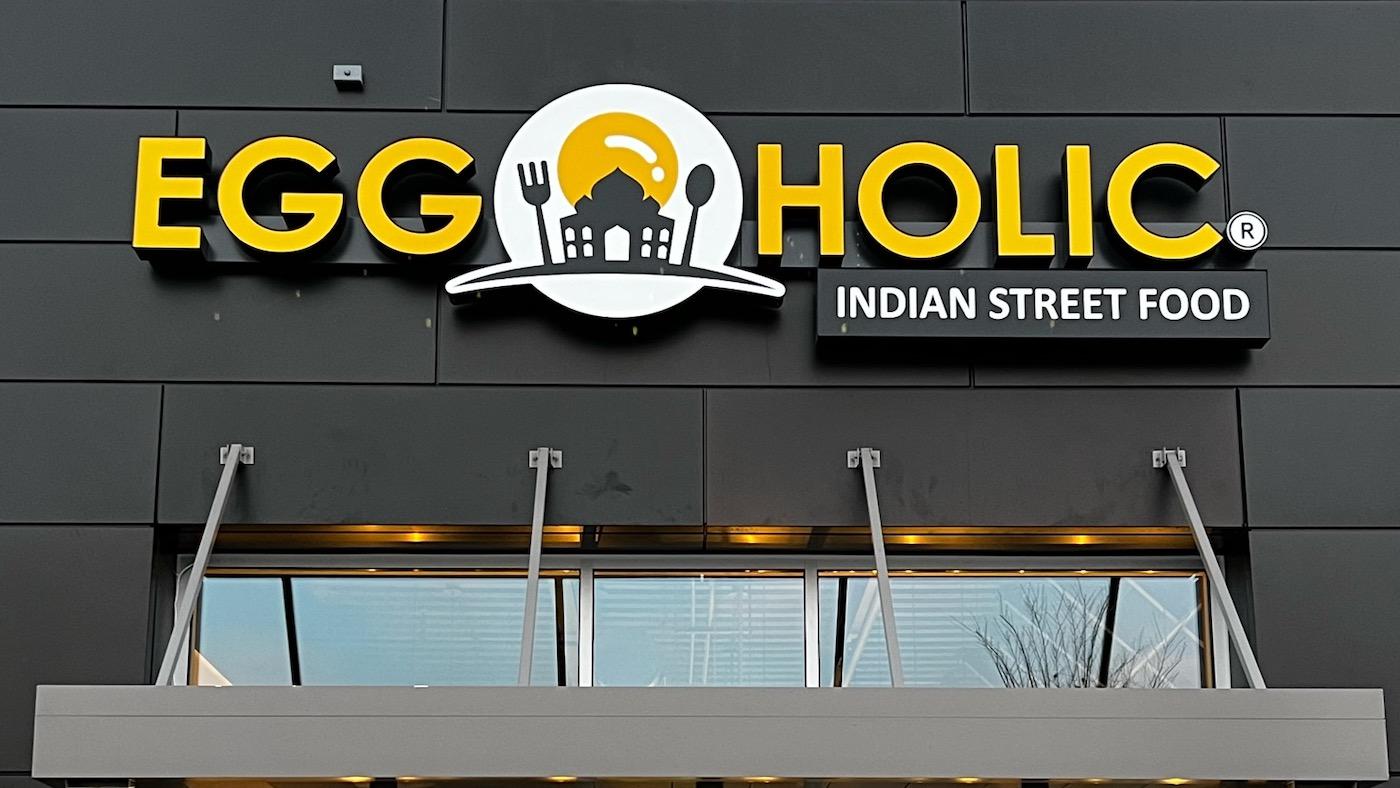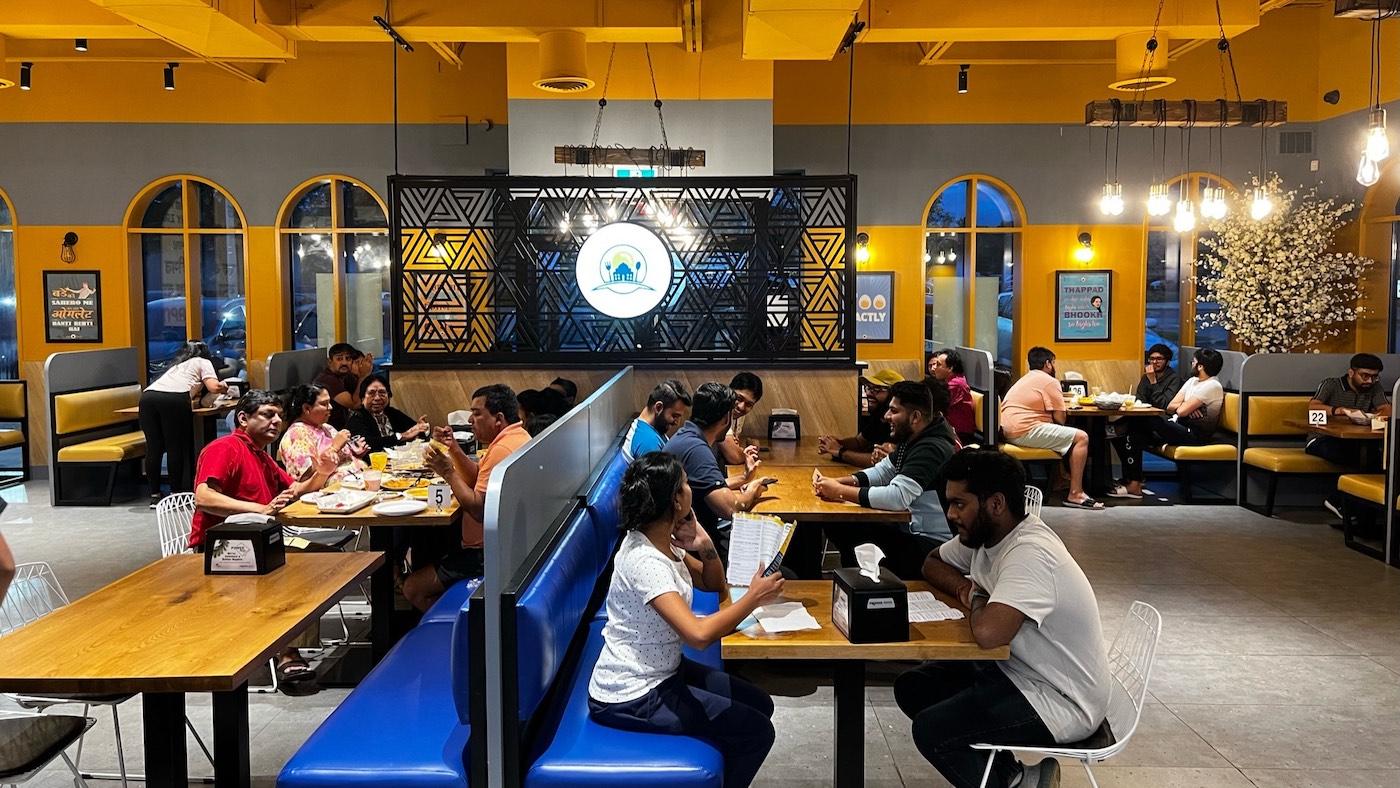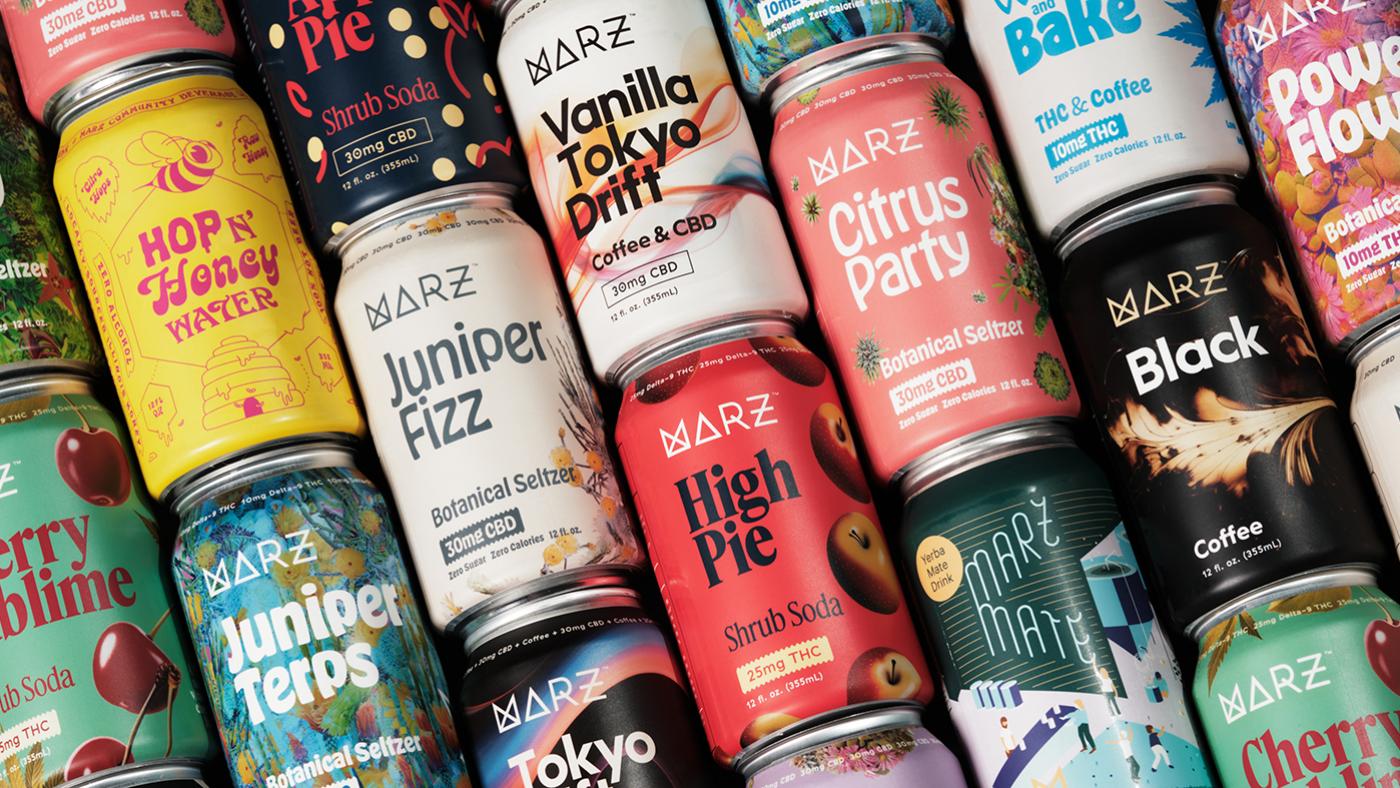What Does it Take to Egg-spand a Restaurant Franchise? The Owners of a Schaumburg-Based “Eggetarian” Indian Chain Explain
Daniel Hautzinger
July 5, 2023

Get more recipes, food news, and stories by signing up for our Deep Dish newsletter.
Neil Shah has been operating franchise restaurants in the greater Washington, D.C. area for more than twenty years. His first was a Subway; he now operates seven locations of the sandwich chain and six outposts of Paisano’s, a regional pizza brand. In 2022, he added another franchise to his businesses, one with far less reach and recognition but much closer to his heart: Eggholic.
“It’s an itch I wanted to scratch, being of Indian descent: trying to do something in our own sphere, with foods that we like,” he explains.
Eggholic is a fast-casual restaurant that originated in Schaumburg and serves a variety of egg dishes flavored with fragrant Indian spices and sauces. There are omelets stuffed with shredded boiled eggs and cheese or topped with aromatic gravy. Fried eggs adorn curries, which might also contain scrambled eggs. Egg salad sandwiches are punched up by spicy tandoori masala and jalapeno, tempered by vegetables and cheese. Even lowly boiled eggs get the spotlight, not just shredded as fillings but also topped with a pungent green sauce.
Such creative use of eggs within Indian food might be surprising, given that Indians eat less than a third of the amount of eggs Americans eat on average. But Gujarat, the western state of India from which both Shah and Eggholic’s founders Lay and Bhagyesh Patel hail, is famous for its vegetarian street food, including a wide range of egg dishes.
“[In] that part of India, people eat eggs at night,” Bhagyesh Patel says. “Late night, and after dinner, before dinner; you just eat this food a lot.”
But Patel and his cousin Lay couldn’t find the kinds of egg dishes they loved in the Chicago area, so they decided to open a restaurant to serve it themselves. In 2018, they opened the first Eggholic (then called Egg-O-Holic) in Schaumburg, near where they lived. The success of that location led them to quickly open another in Chicago, near Halsted St. and Chicago Ave. From there, the brand expanded into other markets, starting with Louisville, Kentucky. There are currently twelve Eggholics across the U.S. and Canada, with sixteen more on the way this year, according to Patel, who still operates the three Chicago area locations. (The third is in Niles.)
“When we opened our first store, for fun we would always say, ‘We have to have 50 at least,’” Patel says—one for each state. “We should take this food to everyone, because it’s very different, unique food…And after opening, we got an amazing response.”
Eggholic’s first franchisee was someone who often ate at the restaurant and loved the food, and asked the Patels to let him bring one to Kentucky. Shah followed soon after with a location in Chantilly, Virginia. He has friends from the Chicago area who told him to check out Eggholic, and he liked what he saw online. He connected with the Patels, “and next thing you know, I was in Chicago trying the food myself,” he recalls.
The concept, menu, and website that impressed Shah enough for him to consider franchising a relatively new business with only a few existing locations, none anywhere close to him, are integral parts of a franchise—and were also essential in helping Eggholic survive and even expand during the pandemic.
The Patels had already set up online ordering, figured out to-go packaging, and set up a delivery service before the pandemic, all of which was a lifeline during the shutdown. As they began opening other locations, they kept their initial logo but had to change other things, like the design of the restaurant, which they initially did themselves.
“We thought it was the best design you can do,” Patel says with a laugh. “And then we had an interior designer in and she just ripped us apart.” The bright yellow color scheme was toned down a bit, and the orientation of the restaurant became more user-friendly.
A set of interior design and construction guidelines was drawn up to give to franchisees, who either use their own architect to implement them and navigate permitting and local guidelines or take Eggholic’s architect. A general counsel acquires the food licenses, and the new location’s staff come to either Schaumburg or an East Coast location to be trained. The Eggholic corporate team is now about ten people, including both Patels and Bhagyesh’s wife.
 While Eggholic gives franchisees interior design and architecture guidelines, there are variations in individual locations. Photo: Courtesy Eggholic
While Eggholic gives franchisees interior design and architecture guidelines, there are variations in individual locations. Photo: Courtesy Eggholic
Obviously, the most important part is the food. Everything at Eggholic is fresh, according to Patel—there’s no shipping of pre-cooked, frozen egg dishes across the country to each franchise from a central prep location. Each dish has a streamlined process and recipe for cooks at every location to carry out, while proprietary spice blends mixed in Schaumburg are sent out to each location, ensuring the same flavor profile.
Eggholic’s ingredient suppliers can ship to all of the franchises in the U.S., or franchisees can find a local vendor whose standards meet that of corporate Eggholic—for instance, each store gets the flatbread chapati made fresh from a vendor every day. Patel estimates that the original location goes through “a couple hundred dozen” eggs a day. (Eggholic’s Canadian stores require a different logistics network.)
“It requires a little more of a touch,” says Shah of Eggholic, as compared to opening and operating a franchise with a bigger brand. “It’s not as absentee or turnkey, because of the food we’re serving: it’s fresh food, from scratch.”
Like Shah, Patel got his start in the restaurant business in America with Subway. “They taught me a lot,” he says. “But they made it so simple that I thought opening a restaurant would be that simple—but it was not. It’s not that easy.”
He and his cousin were intentional about the location of their first restaurant. It’s in a strip mall that also includes an outpost of the Indian grocery store chain Patel Brothers (which started in Chicago), as well as various other businesses catering to South Asians. Many of the existing Eggholic locations are near a Patel Brothers, although Bhagyesh Patel says the franchisees, all of whom are currently South Asian, find a specific location after being directed towards several general areas by the Eggholic team. “It’s easier when we open in an Indian community, because they have an idea [of the food], but we learn that all the people come,” he says.
While the concept of the restaurant is more familiar to Indians—on a recent Monday at the Schaumburg location, almost all of the customers were South Asian—the flavors and ingredients would be familiar to any American who has been to even a Westernized Indian restaurant.
In fact, such egg-centric cuisine is relatively new even in India. Both the central government and the industry group the National Egg Coordination Committee have sought to increase egg consumption in India in order to help the agricultural industry; the NECC enlists celebrities such as cricket players in ads and even has a slogan, “Be it Sunday or Monday, eat an egg.”
“When my mom was growing up, egg was not a thing,” says Patel. But, “It’s pretty common nowadays.”
The campaign has especially borne fruit in Gujarat, where around 60 percent of people are vegetarian, particularly in its largest city of Ahmedabad. But local governments have also recently tried to curtail the sale of eggs, which some Hindus consider to be a meat product: Ahmedabad sparked controversy by banning the sale or display of meat, fish, or eggs by street vendors in 2021.
Eggholic likes to call vegetarians who eat eggs, like Patel and Shah, “eggetarian.” They hope to continue spreading the concept—flavorful, filling vegetarian food packed with protein—across the country. Patel says they have begun to set their sights on the South, and haven’t even been able to consider the West yet. “We have a lot of inquiries, but I think it’s too far for us: it’s a four-hour flight,” he says.
Patel currently goes to every franchise opening, although he now has a traveling team that allows him to spend less time setting each location up. Once a location is open, Eggholic provides support and new menu items as well as big-picture initiatives and guidance, and communicates frequently, but the franchisees are basically independent.
“We’re still a small company,” Patel says. “We’re very picky who we choose.” They have not advertised franchising opportunities; every franchisee has come to them first, wanting to join the brand of their own accord. “We want to make sure it’s locally owned and operated. Somebody has to live in that city, they need to know the area, they need to know the people, because we want our franchisee to connect with the local community.”
“Everyone has their own requirements,” Shah says. “Each market is different.” He knows his own area, and thinks that it could use more than one Eggholic. Only a year in, he’s already looking to open another.







